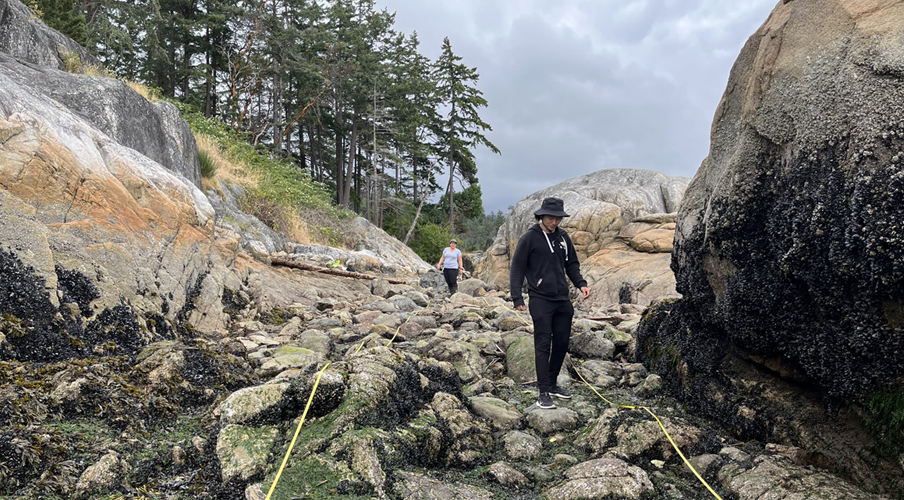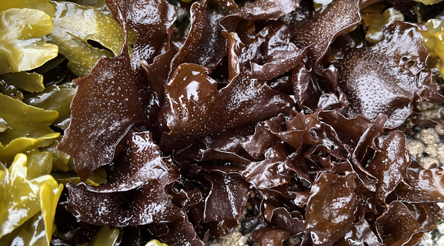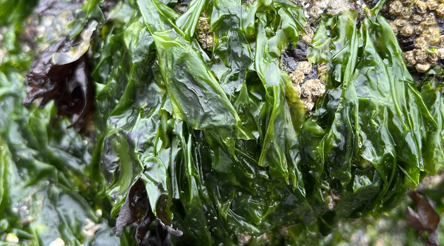Bioinformatics
Seasonal Seaweed Diversity in the Intertidal Zones of Greater Vancouver

Funding Agencies
- Department of Fisheries and Oceans (DFO)
Partners
- Initiated by Langara
Principal Investigators
- Kyra Janot, Biology
Project Status
Completed
The last few years have seen extreme weather events such as heat domes that have likely impacted the health of intertidal organisms such as seaweeds. With climate change, species may begin to shift seasonally, not just annually. Seaweeds could start appearing earlier than normal or perhaps die off earlier than they otherwise might if temperatures become too hot in the summer. To track these trends, it is important to collect baseline data that provides a snapshot of the state of an area at a particular point in time, against which future data can be compared to monitor how an ecosystem is changing.
This project, supported by the Department of Fisheries and Oceans (DFO) and part of the Coastal Environmental Baseline Program, is mandated to support the collection of baseline data for seaweed populations in four locations within the Port of Vancouver by way of environmental DNA sampling.
Much like plants on land, seaweeds provide food and shelter for numerous other organisms in the marine environment. Changes in seaweed life cycles could have significant impacts on local ecosystems. Findings from this project will allow scientists to better understand future changes in both the seaweeds and the biological communities they support.


You might also be interested in
Natural Products Innovation / Bioinformatics
Applied Science for the Canadian Cannabis Industry (ASCCI)
Applied Science for the Canadian Cannabis Industry (ASCCI) Read moreNatural Products Innovation
Feral Hops for B.C.’s Microbrewing Industry
Feral Hops for B.C.’s Microbrewing Industry Read moreGet real solutions.
Request a consultation